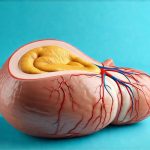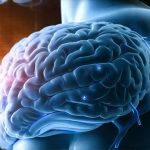Anxiety and panic are often associated with racing thoughts, excessive worry, and feelings of dread. However, many people experience anxiety not as a psychological state alone, but as very real physical symptoms that can be incredibly distressing. These physical manifestations often lead to confusion, fear, and even the mistaken belief that something is seriously wrong medically. Nausea, dizziness, and digestive upset are remarkably common presentations of anxiety and panic, yet they are frequently underestimated or misattributed, leading individuals to seek medical interventions that don’t address the underlying cause – the anxious mind. Understanding this connection is crucial for effective management and a return to wellbeing.
The body’s response to perceived threat isn’t limited to mental processes; it’s a full-system activation geared towards survival. When we experience anxiety or panic, our nervous system shifts into ‘fight-or-flight’ mode, triggering a cascade of physiological changes designed to prepare us for immediate action. These changes involve the release of hormones like adrenaline and cortisol, increased heart rate, rapid breathing, and alterations in blood flow. While intended to be helpful in life-threatening situations, this response can become misfired when triggered by psychological stressors, leading to physical symptoms even when there is no actual danger present. It’s important to remember that these are normal physiological responses to a perceived threat – the issue lies not necessarily in the symptom itself, but in the overactivation of the anxiety response.
The Gut-Brain Connection and Anxiety
The intricate relationship between the brain and the gut, often referred to as the gut-brain axis, plays a significant role in how anxiety manifests physically. This isn’t merely a metaphorical connection; there’s a direct physiological link. The gut contains millions of neurons – sometimes called the “second brain” – and communicates with the brain via the vagus nerve. This two-way communication means that stress and anxiety can directly impact digestive function, and conversely, problems in the gut can influence mood and anxiety levels.
- Increased intestinal permeability (often termed “leaky gut”) has been linked to anxiety and depression. Stress hormones can compromise the integrity of the gut lining, allowing substances to enter the bloodstream and potentially triggering inflammation which can affect brain function. How full-body scans can sometimes offer insights into these issues.
- Changes in the gut microbiome – the community of bacteria living in our digestive system – are also increasingly recognized as playing a role in mental health. Anxiety can disrupt this delicate balance, leading to dysbiosis (an imbalance of gut bacteria) that may exacerbate anxious feelings and physical symptoms. Digestive enzyme tests might help identify underlying imbalances contributing to these issues.
Because of this strong connection, anxiety often manifests as a wide range of digestive issues. These can include nausea, vomiting, diarrhea, constipation, bloating, stomach cramps, and irritable bowel syndrome (IBS)-like symptoms. The sensation of “butterflies” in the stomach before a stressful event is a common example of this gut-brain interplay. In more severe cases, anxiety can trigger significant gastrointestinal distress that mimics serious medical conditions, leading to unnecessary worry and testing. Understanding this connection allows for a more holistic approach to managing anxiety. How digestive tests can sometimes help rule out other causes of digestive distress.
Dizziness, Lightheadedness & Anxiety’s Impact on Blood Flow
Dizziness and lightheadedness are frequently reported symptoms associated with both anxiety and panic attacks. These sensations can range from mild wooziness to a feeling of the room spinning (vertigo) or even impending fainting. The physiological basis for this lies in how anxiety affects blood flow and breathing patterns. During times of stress, our bodies prepare for fight-or-flight, leading to several changes that can contribute to dizziness:
- Hyperventilation: Anxiety often causes rapid, shallow breathing (hyperventilation). This leads to a reduction in carbon dioxide levels in the blood, causing vasoconstriction – narrowing of blood vessels – which reduces blood flow to the brain.
- Blood Pooling: Adrenaline surges cause blood vessels to constrict peripherally, meaning more blood is directed towards muscles and vital organs. Simultaneously, anxiety can lead to muscle tension, particularly in the neck and shoulders, potentially impeding blood flow. This combination can result in a feeling of lightheadedness or dizziness as the brain receives insufficient oxygen.
- Vestibular System Disruption: While less common, anxiety can sometimes impact the vestibular system – the inner ear structure responsible for balance – leading to feelings of vertigo.
It’s important to differentiate between dizziness caused by anxiety and that resulting from other medical conditions. However, if a thorough medical evaluation rules out underlying physical causes (such as inner ear infections or heart problems), anxiety should be considered as a potential contributing factor. Panic attacks often involve intense dizziness, creating a terrifying sensation of losing control and potentially leading to fears of falling or fainting. This fear can then exacerbate the anxiety, creating a vicious cycle. Can emotional suppression also play a role in these physiological responses.
Understanding Nausea & Anxiety’s Role
Nausea is another common physical manifestation of anxiety and panic. It’s often described as a feeling of queasiness, discomfort in the stomach, and an urge to vomit. Several mechanisms contribute to this symptom:
- Autonomic Nervous System Activation: When anxiety triggers the fight-or-flight response, it activates the autonomic nervous system, which controls involuntary bodily functions like digestion. This activation can disrupt normal digestive processes, leading to nausea.
- Increased Stomach Acid Production: Stress hormones can increase stomach acid production, potentially irritating the stomach lining and causing feelings of nausea.
- Vagal Nerve Stimulation: The vagus nerve plays a role in both digestion and anxiety responses. Intense anxiety can overstimulate this nerve, contributing to nausea and even vomiting.
The experience of nausea associated with anxiety is often cyclical. Feeling nauseous can itself increase anxiety levels, creating a feedback loop that intensifies the symptom. Many individuals experiencing anxiety-related nausea mistakenly believe they have food poisoning or another medical illness, further fueling their anxiety. Recognizing this connection and addressing the underlying anxiety are crucial steps in alleviating the nausea. How diuretics can also impact these systems.
Managing Anxiety-Related Physical Symptoms
While it’s vital to rule out other medical conditions with a doctor’s evaluation, understanding that physical symptoms like nausea, dizziness, and digestive upset can be linked to anxiety is the first step towards effective management. Here’s a simple four-step approach:
- Identify Triggers: Begin by identifying situations, thoughts, or feelings that tend to trigger your anxiety and associated physical symptoms. Keeping a journal can be incredibly helpful in this process.
- Practice Relaxation Techniques: Incorporate relaxation techniques into your daily routine. These could include deep breathing exercises (diaphragmatic breathing), progressive muscle relaxation, meditation, or yoga. Regular practice can help calm the nervous system and reduce anxiety levels.
- Mindfulness & Cognitive Restructuring: Mindfulness practices cultivate awareness of thoughts and feelings without judgment. Cognitive restructuring involves identifying and challenging negative thought patterns that contribute to anxiety.
- Seek Professional Support: If anxiety is significantly impacting your quality of life, consider seeking support from a mental health professional. Therapies like cognitive behavioral therapy (CBT) are highly effective in managing anxiety disorders.
The Importance of Self-Compassion and Patience
Living with anxiety and experiencing these distressing physical symptoms can be incredibly challenging. It’s essential to practice self-compassion – treating yourself with the same kindness and understanding you would offer a friend going through a difficult time. Remember that these symptoms are not a sign of weakness or illness, but rather a normal physiological response to perceived threat. Be patient with yourself throughout the process of managing anxiety. It takes time and effort to learn new coping mechanisms and change ingrained patterns of thinking and behaving. Avoid self-blame and focus on small, achievable steps towards improving your wellbeing. Can your core strength also affect these processes? Ultimately, recognizing the connection between mind and body is a powerful step towards taking control of your health and reclaiming your life.


















